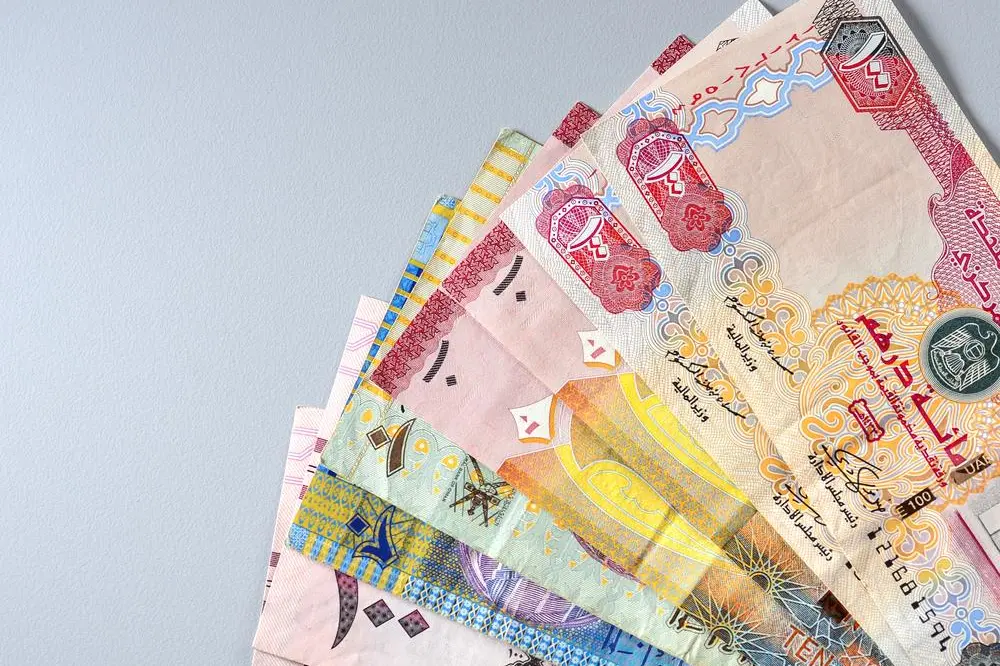PHOTO
The development of securitisation laws to allow for banks to package and trade distressed debts is one of a number of capital market reforms that could help to improve both the credit position of banks and the ability of Gulf governments to withstand economic shocks, a leading regional economist has said.
Nasser Saidi, a former economy and industry minister of Lebanon and an ex-first vice-governor of Lebanon’s central bank, told the Corporate Restructuring Summit in Dubai on Wednesday that although bankruptcy laws have been introduced in a number of countries, including Saudi Arabia, the United Arab Emirates and Bahrain, "we are right at the beginning" in terms of developing a legal framework to aid restructuring.
"It also requires securitisation laws," said Saidi, who has also previously advised as chief economist to the Dubai International Financial Centre, but who now runs his own consultancy firm, Nasser Saidi & Associates. "If you develop securitisation laws, that allows you to develop a CLO (collateralised loan obligations) market and CDO (collateralised debt obligations) market. We also need that.
"Let's not do that behind closed doors. It's better to recognise that you have problem loans, package them and sell them."
Saidi said that although Gulf governments "have dominated emerging market sovereign issues" on global bond markets this year, all this has achieved in terms of the local banking market has been to reduce liquidity.
"If governments are borrowing in a number of countries across the GCC region, that then means that you are crowding out the private sector. And when you crowd out the private sector, you have less credit growth in the private sector and that tends to lead to lower economic growth in the private sector and higher unemployment."
He argued that local currency-denominated capital markets were needed both as an alternative source of financing, and as a useful policy tool.
"It's important both for governments as well as for corporates. For governments, they could then use debt markets for infrastructure projects instead of tapping the banks."
The fact that many GCC governments peg their currencies to the U.S. dollar means that they have few monetary policy levers in times of a crisis, he said, but local currency debt markets allow central banks to conduct open market operations (e.g. quantitative easing).
"Of course, importantly for fiscal policy, it means fiscal authorities are able to tap the markets instead of using the banks," Saidi added. "This is an essential point in my view, the adjustment to the new oil normal that took place since 2015 was too severe and fiscal authority has made the business cycle even worse,” he added.
“Whenever the oil prices go down, governments cut spending or they delay payments - that makes the downturn worse. When oil prices are up, they spend more. The net result is the boom-bust cycle gets much bigger and therefore it affects the banking system."
In a panel debate on managing non-performing loans, Bruce Wade, the chief risk officer at National Bank of Bahrain, said that he had previously worked as head of restructuring for Citibank both in Australia and Hong Kong, where distressed debt markets were very active, meaning pricing for distressed loan portolios was clear.
"I've not seen that in the Middle East and I think that is something that could definitely be developed."
He argued that there were benefits to both buyers and sellers for dealing in distressed debt - sellers are able to purge balance sheets of non-performing loans, free up resources that had been used in dealing with these loans and bring in fresh sources of funds. Buyers of distressed debts are usually specialists in recovery who can often drive up expected returns and make a profit on loan purchases, Wade added, but he said there seems to be a reluctance in Middle East markets to sell distresseed debt.
"What we need in the marketplace for this to occur is more willing buyers and sellers," Wade said. "I speak to other bankers and they say, 'I'm not interested'."
He also argued that a "strong legal framework" was needed to give buyers confidence in their ability to salvage returns.
Although many countries now have bankruptcy laws, Saidi warned that to date, most of them are untested. He also expressed concern about courts' ability to deal with complex financial restructuring cases.
"Our judges simply have not had the experience. You need judicial reform," he said.
In a separate panel session, Talat Hafiz, secretary-general of Media & Banking Awareness of the Saudi Banks association, argued that the kingdom had established commercial courts that "have already become specialised in dealing with banking and commercial-related issues".
The Corporate Restructuring Summit is a two-day event held at the Sheraton Grand Hotel which concludes on Thursday.
(Reporting by Michael Fahy; Editing by Shane McGinley)
( michael.fahy@thomsonreuters.com )
Our Standards: The Thomson Reuters Trust Principles
Disclaimer: This article is provided for informational purposes only. The content does not provide tax, legal or investment advice or opinion regarding the suitability, value or profitability of any particular security, portfolio or investment strategy. Read our full disclaimer policy here.
© ZAWYA 2018





















